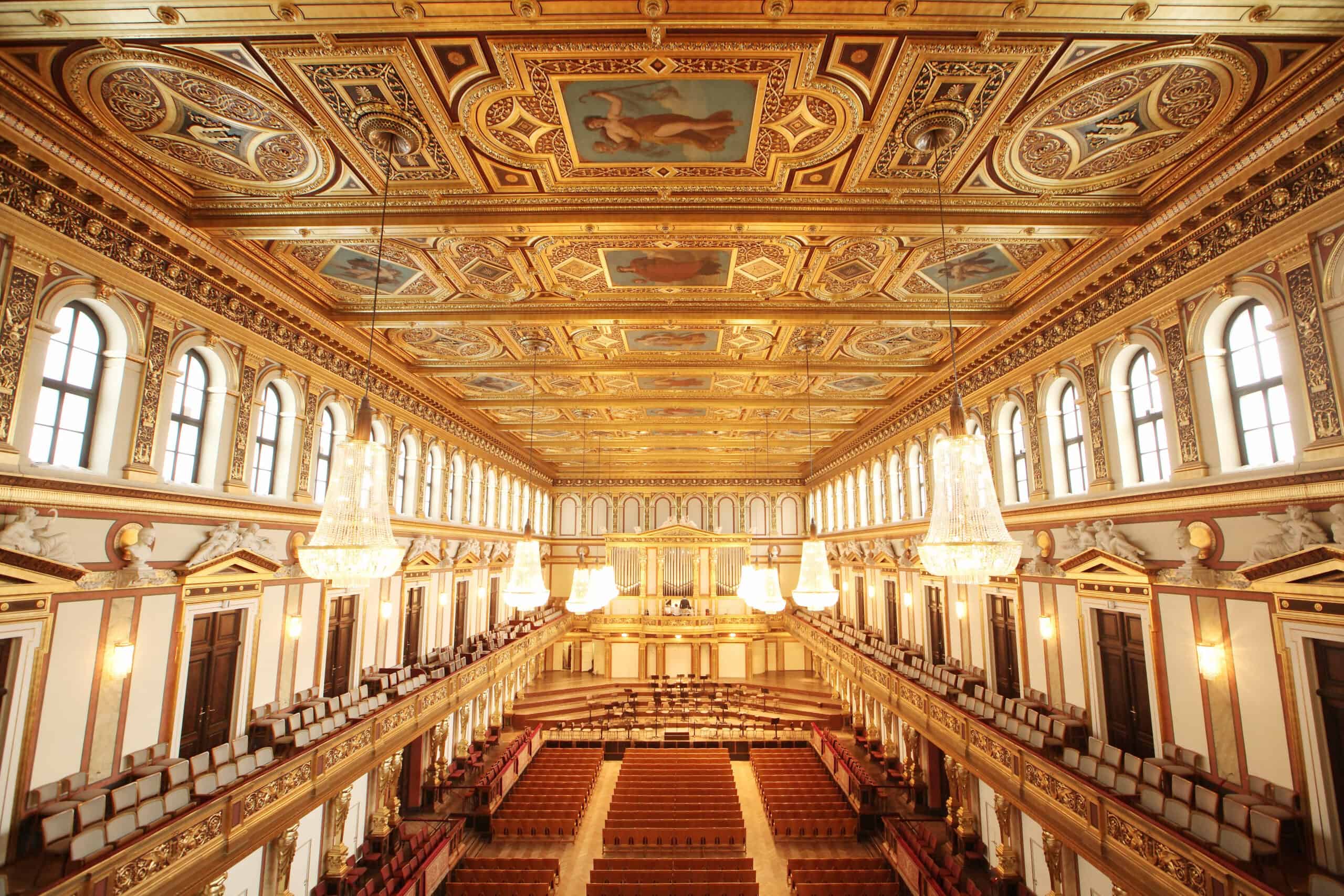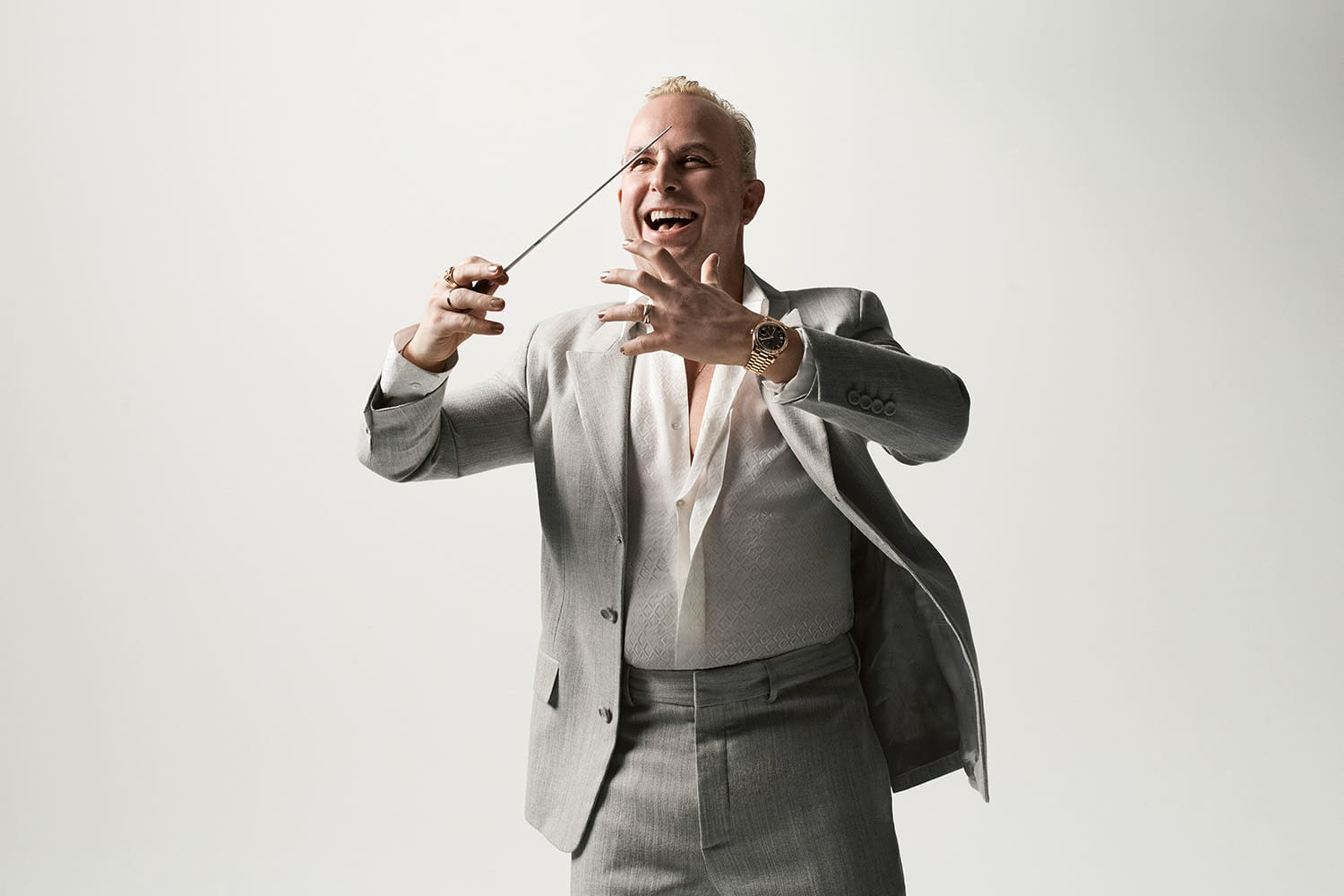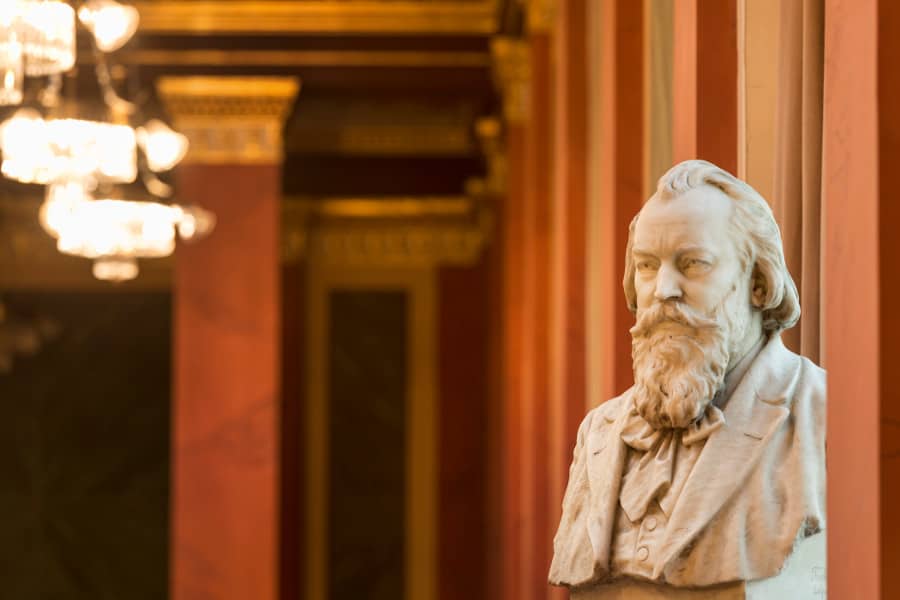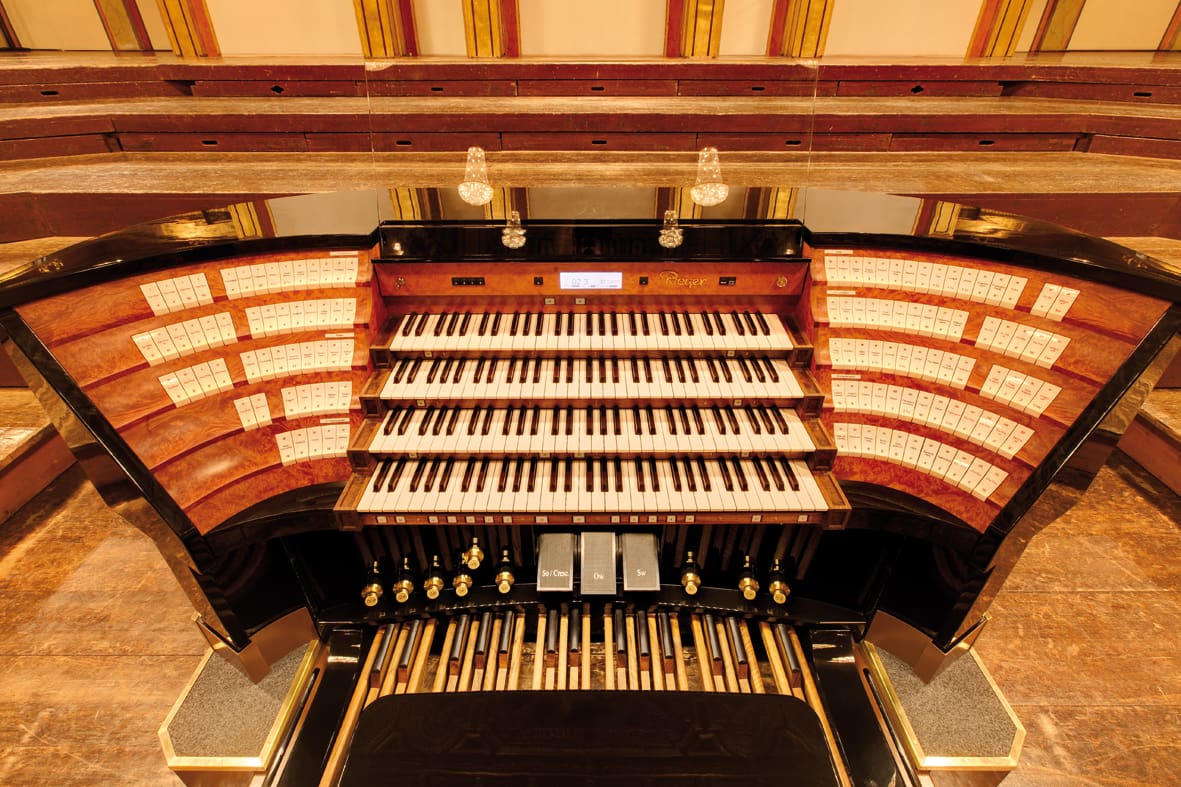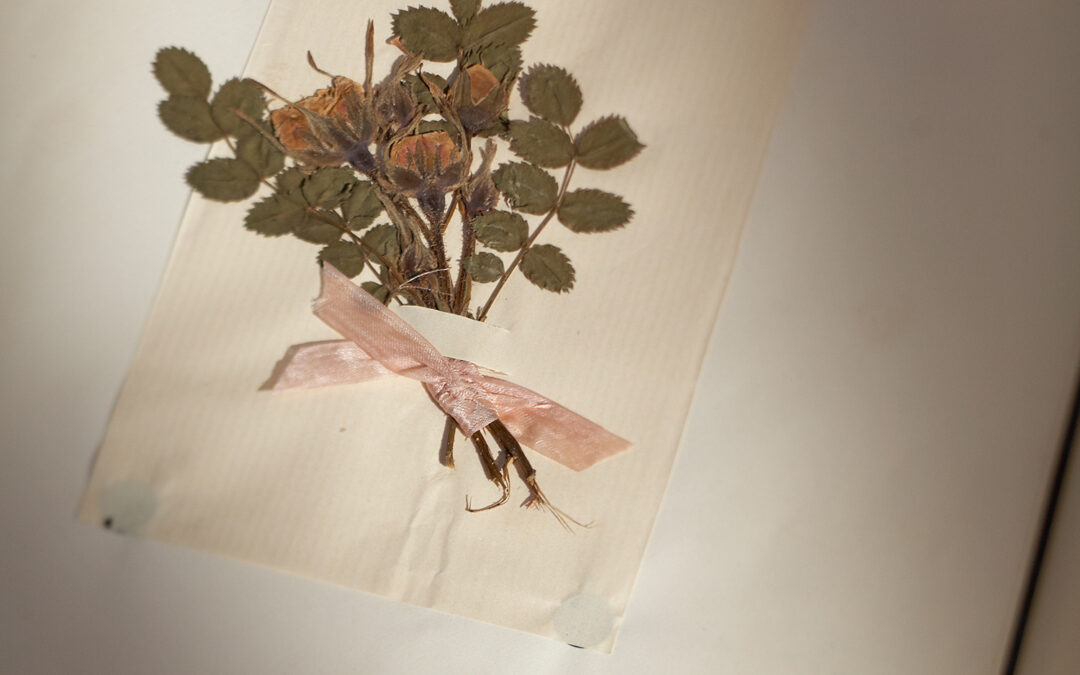Musikverein Festival: Claras Blumenalbum
March 10 to April 12, 2025
Among the countless treasures preserved in the archives of the Gesellschaft der Musikfreunde in Wien, this is perhaps the finest, most delicate – and certainly the most tender: an album of bouquets of dried flowers that Clara Schumann collected for Johannes Brahms. At the Musikverein Festival 2025, “Clara Blumenablum” forms the starting point of a blossoming program revolving around the themes of love, friendship and nature as a resonating space of emotion. Flowers can say what you can’t simply put into words. And of course: the music!
© Stephan Trierenberg
Experience contemporary music in the exclusive “Nachtklänge” – Read more!
“Take this, my dear Johannes, as a memorial booklet from your friend Clara Schumann”. She wrote it herself as a dedication on the first page, directly under the first dried bouquet in this album, which she gave him on Christmas Eve 1854. It was a memorable Christmas that was celebrated in Schumann’s apartment. Because he was missing. In March 1854, Robert Schumann had been taken to a psychiatric institution at his own request. He disappeared behind the walls of the institution in silence. Clara heard nothing from him, not a word for months. Then – finally – a sign! Schumann had picked flowers in the asylum garden and cryptically remarked that they already knew who they were for. So they went to Clara, who pounced on the silent messengers to greet them as the “first sign of love”.
But now, in December 1854, there were flowers for him too: the 21-year-old Johannes Brahms, who had rushed to Düsseldorf to help Clara in her distress. He had come as a helper and comforter, he was allowed to feel like a friend. But it wasn’t that simple, it wasn’t that clear, his feelings pushed him off course – literally, even when he broke off a train journey through southern Germany in the summer of 1854 head over heels to return to her in a hurry. And she? When she returned home to Düsseldorf for Christmas 1854, she confided in her diary: “… I had longed for Johannes endlessly!” Shouldn’t this feeling be called something else? Clara made sure of this in the dedication of the flower album, which she presented as a “friend”. Brahms, however, dared to use the word when he wrote to her in the summer of 1855: “… keep me dear, I love you very much!” Clara was in Detmold at the time, spending several days at the princely court. There she collected three bouquets for him: delicate arrangements with blue ribbons and pink bows, tied for Johannes and recorded in Clara’s flower album.
Isn’t that what an album like this is all about? That what is in truth so fleeting is pressed, dried and made permanent: love, indeed life itself – transient “like the flowers of the grass”. Brahms later found the music for this in his “German Requiem” on the biblical text in Luther’s German: “The grass has withered and the flower has fallen.” However, he kept Clara’s flower album as a sign of a love that eluded the ephemeral: through transformation. After Robert’s death, they did not become a couple – Clara and Johannes remained alone in order to remain devoted to each other, connected by the music they played to each other.
Love was allowed to speak in this language of subtle ciphers and intimate signs. This is precisely what music is able to do like no other art: to be meaningful without getting caught up in the treacherous directness of words, to allow vibrations that can remain a secret.
© Stephan Trierenberg
“Claras Blumenalbum”, the Musikverein Festival 2025, opens up many pages: of course with music by her, by Clara Schumann, who became an honorary member of the Musikverein at the age of 19, and by the two people to whom she – one way or another – gave her love. In addition to chamber music and songs by the three (Altenberg Trio / Christiane Karg and Malcolm Martineau), precious rarities from other genres can also be heard, including Clara Schumann’s Piano Concerto (Orchester Wiener Akademie) and Robert Schumann’s choral work “Der Rose Pilgerfahrt” (Wiener Singverein). The Munich Philharmonic Orchestra, conducted by Mirga Gražinytė-Tyla, will come to Vienna with Schumann’s “Spring Symphony” and his Violin Concerto (Vilde Frang). Under its designated chief conductor, Klaus Mäkelä, the Royal Concertgebouw Orchestra will play Schumann’s Fourth, Schönberg’s “Verklärte Nacht” and Mahler’s First – all works that also tell of the painful and pleasurable poetry of love.
Mahler, in general. “I know for myself,” he said, “that as long as I can summarise my experience in words, I certainly wouldn’t make music about it.” He carried the blue flower of Romanticism over into the modern era. For example, he listened anew to “Des Knaben Wunderhorn” in his Fourth Symphony, which can be heard at the festival’s opening with the Leipzig Gewandhaus Orchestra under Andris Nelsons. The “Blumine” movement is on the Gewandhaus Orchestra’s programme the following day. As is well known, it comes from the early version of Mahler’s First, for which he had initially intended a different title: “Der Titan” after the arch-romantic Jean-Paul. From here, there is another fine biographical thread to Clara and her flower album: on Christmas Eve 1854, she gave Johannes this delicate little book and a complete edition of Jean Paul’s works.
Romanticism wherever you look: consumed by unfulfilled love in Fauré’s “Pelléas et Mélisande” and Wagner’s “Wesendonck-Lieder” or under the spell of nature in Beethoven’s Sixth Symphony, the “Pastorale”, to be experienced in a festival program of the Vienna Symphony Orchestra(12.March & March 13), fabulously close to nature in Dvořák and his “Golden Spinning Wheel”, inspired by the ballad collection “Kytice” (Bouquet of Flowers), or dreamily in Chopin’s First Piano Concerto(Wiener Concert-Verein). An unfulfilled love was transformed into music – as later, in a completely different language, with Alban Berg and his “Lyric Suite” (in the festival program with a chamber music ensemble of the Vienna Philharmonic). What could not be said in public was sealed in ciphers. Sound symbols like dried flowers.
© Stephan Trierenberg
Romanticism – seen and heard this way – cannot be confined to one epoch. Nikolaus Harnoncourt once said it unforgettably in an interview with “Musikfreunde” when he spoke about the ardent Romantics in early music: the great masters of boundless passion such as Claudio Monteverdi. The Bach Consort Wien makes this love music blossom, while the Concentus Musicus Wien goes on to Mozart. His Mass in C minor also tells the story of Constanze, his newly wedded beloved wife, in a sacred setting. The Artis Quartett completes the festival bouquet with Mozart’s “Violet Quartet” and two great works related to secret love: Janáček’s “Intimate Letters” indeed, and Mendelssohn’s F minor Quartet, possibly …
Love is then sung openly in a festival programme that brings the Strauss into spring – yes, that’s right, Johann Strauss, and with a luxury cast, as could not be otherwise for the 200th anniversary of his birth. Birthday of the Waltz King at the Musikverein: Franz Welser-Möst conducts excerpts from Strauss operettas with the Vienna Philharmonic. “Claras Blumenalbum” is a source of creativity everywhere – artists, ensembles and orchestras associated with the Musikverein are taking part in the festival with many other imaginative programmes, including Karl Markovics, Corinna Harfouch, Max Müller, Michael Köhlmeier, Die Strottern, Trio Frühstück and Duo Minerva as protagonists in the four New Halls. The children’s and youth programmes open further album pages: Dodo and Tatz talk musically about the joy of giving, Agathe’s Wunderkoffer ignites the scent of flowers, and “Love is in the air” in the Großer Musikvereinssaal when Sebastian Radon presents a family concert for the festival. Schumann’s muse also inspires the Musikverein’s Souvenir series for people with special needs and takes its motto from a song that Robert gave his Clara as a wedding present: “You are like a flower”.
“Dear Johannes, what treasures I am collecting!” wrote the 74-year-old Clara Schumann enthusiastically to the 60-year-old Johannes Brahms when he sent her another of his new pieces. Clara’s flower album had been tucked away there for a long time, a treasure trove of memories from the old days. But their love remained young – thanks to music. What could not have flourished in life flourished in art.
“Dear Johannes, what treasures I collect!” wrote the 74-year-old Clara Schumann enthusiastically to the 60-year-old Johannes Brahms when he sent her another of his new pieces. Clara’s flower album had long since been tucked away, a treasure trove of memories from the old days. But their love remained young – thanks to the music. What could not have flourished in life blossomed in art.
Joachim Reiber
Alessandro Cavana
Night sounds | night flowers
Under the title “night flowers”, the pianist, conductor and composer Marino Formenti is curating a special concert series – short “night sounds” with contemporary music, which will be played in different instrumentations following evening concerts as part of the Musikverein Festival “Claras Blumenalbum”. Inspired by Clara Schumann’s gift of flowers to Johannes Brahms, the programs feature works about friendship, love and solidarity – loving thoughts for others, expressed in dedications and musical dialogues. Nono, Saunders and Kurtág meet Mozart and free improvisation – a nocturnal encounter with contemporary sounds that invite you to linger and reflect, as a poetic conclusion to a concert evening.
Alessandro Cavana



